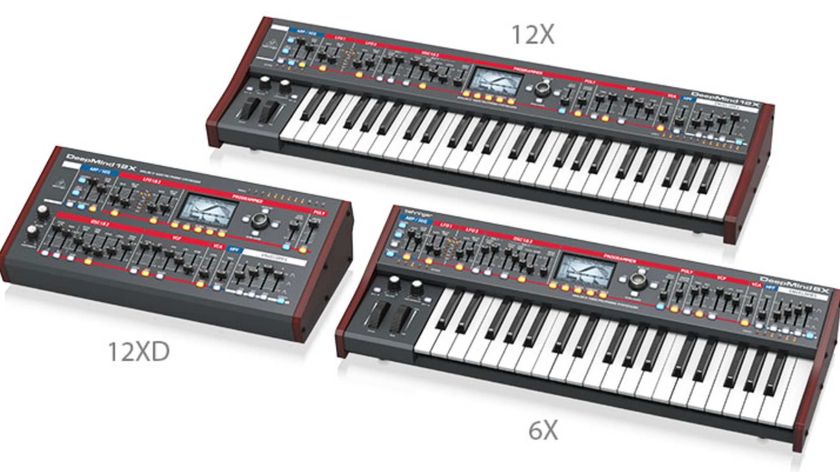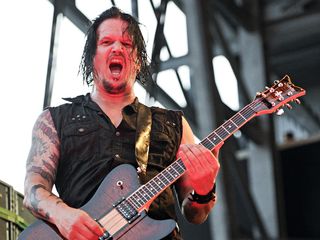
Disturbed/Fight Or Flight's Dan Donegan picks 10 essential guitar albums
With four number one albums to his credit and over 14 million units sold worldwide since 2000, Disturbed's Dan Donegan has made his mark on the hard rock/metal guitar-playing community in a surprisingly short time.
“Whenever I hear from somebody who compliments my guitar playing and cites me as an influence, it’s kind of overwhelming," Donegan says. "It’s incredibly flattering when I run into kids and they tell me that they picked up the guitar because of me. I think back to how I felt when I was learning the guitar, and I had my heroes and their albums to learn from. To even imagine that I’m now part of that cycle, handing down the guitar to a younger generation, it’s humbling."
With Disturbed currently on hiatus, Donegan recently formed a new outfit called Fight Or Flight, which also includes singer Dan Chandler, bassist Sean Corcoran, guitarist Jeremy Jayson and Disturbed's Mike Wengren on drums. The band's full-length debut, A Life By Design, will be released on 23 July.
As to how he approached his guitar playing with Fight Or Flight, Donegan says that he wanted to stretch out a bit and get out of his comfort zone. "It was more of a psychological thing than a concerted technique thing," he explains. "What really helped was the fact that Dan Chandler is a very musical guy and plays a bit of guitar, too, so that allowed me to come at the guitar parts in ways that were different from what I do in Disturbed."
Hit albums such as The Sickness, Believe and Indestructible have given budding axe slingers plenty of guitar meat to chew on, and on the following pages, Donegan runs down what he considers to be 10 essential guitar albums that have influenced his own playing (listed alphabetically by artist).
“It’s important to learn from your influences, but you should always try to be yourself," he stresses. "That’s what I’ve done by listening to the classic bands – I emulated for a time, but then I put my own spin on what they did.”
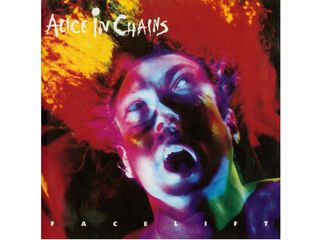
Alice In Chains - Facelift (1990)
“Jerry Cantrell is a brilliant songwriter and singer, but as a guitarist he sort of defines taste. When he’s soloing, you can tell he’s always doing what’s best for the song; nothing he does is self-indulgent. He might not be seen as a shred hero, but I think what he does is far more important than that.
“There’s that whole saying – ‘He can do more with one note than other guys do with 30’ – and it’s true about Jerry. You hear people talk about a player like that – Eddie Van Halen used to say the same thing about Eric Clapton – but it doesn’t make sense until you hear somebody actually do it. Jerry is all about economy of notes and hitting that perfect passage every time.
“He has a very moody, vibe sound that really fits the music. I like his use of the wah pedal, too, and I probably took a little bit from him in that respect, having my pedal sort of half-cocked for some filtering. It adds a tone that isn’t over-exaggerated, a sense of surrealism.”
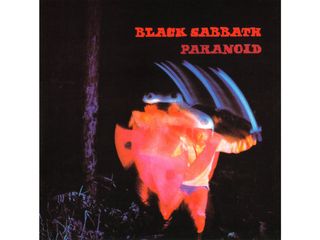
Black Sabbath - Paranoid (1970)
“Black Sabbath has been a big influence on me, and this record really shines. I love the guitar playing, but the songs are so big and unapologetically dark. The vibe the band gives off here is evil and scary and unlike anything that has ever been done before.
“The family across the street were kind of hippies, and they had the Black Sabbath and Dio albums. I would have to kind of sneak over to their house to listen to this music. It wasn’t being played on the radio; this was music for outcasts, in a way. It fascinated me. I had to find out why this was considered to be ‘underground’ music. And it blew my mind.
“Iron Man and Paranoid were some of the first riffs I ever learned on the guitar. The darkness of Tony Iommi’s playing just spoke to me. He has that one thing that every guitarist strives for: his own sound. He doesn’t try to be anything other than what he is.”
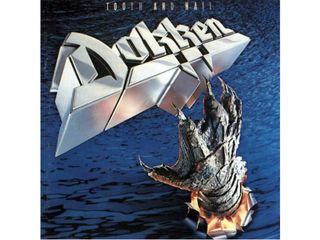
Dokken - Tooth And Nail (1984)
"I know that hair metal gets a bad rap, but there’s so many great guitar players that came from the ‘80s. Sure, they might have been using too much Aqua Net, and there might have been some love ballads going on, but there’s no denying that the guitarists could shred.
“The guitar solo on the song Tooth And Nail blew me away. I had just started playing the guitar, and here was this new guy, George Lynch, performing with such precision and creativity. His solos on Alone Again and Into The Fire were smart, melodic and memorable. I would air-guitar to them – that’s how hooky they were.
“George was a great guitar player to learn from because he sort of did a little bit of everything. He had his own way of tapping, too, at a time when everybody was doing it. I practiced to him a lot, for sure.”
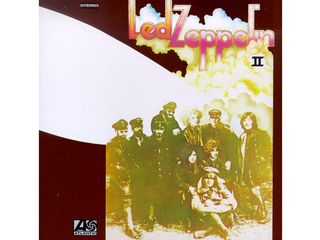
Led Zeppelin - Led Zeppelin II (1969)
“This was probably the first cassette tape I ever got. When I first heard it, I could tell that Jimmy Page was so ahead of his time with his playing, his writing and the way he made a guitar sound. His particular manner of layering guitars definitely made an impact on me and how I tried to do the same on Disturbed albums.
“Whole Lotta Love, Heartbreaker, Ramble On – great riffs and amazing tunes that have stood the test of time. I used to cover Living Loving Maid, another brilliant song. If you’re learning how to play guitar, there’s such a wealth of taste and style you can soak up from performing this stuff.
“Some of the playing on things like Heartbreaker is a little loose, but I think it’s because his brain was just so far ahead of his fingers. His creativity couldn’t be stopped. But being in such a powerful, improvisational jam band, as Zeppelin was, allowed him the chance to do anything he wanted. It still sounds amazing.”
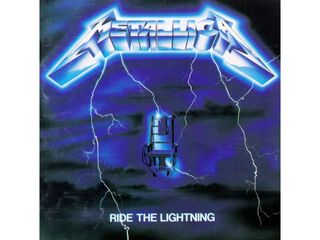
Metallica - Ride The Lightning (1984)
“One of the kids from the neighborhood brought this cassette over to my house and played it for me. The first song I heard was Trapped Under Ice, and all at once I was like, ‘What the fuck is this?!’ There’s a couple of times in my life when I remember where I was when I heard an album for the first time – this is one of them.
“The riff to Creeping Death, the song Fight Fire With Fire, the lyrics to Fade To Black – all of these jumped out and spoke to me. The way that James and Kirk played guitar so viciously just startled me. I can still picture myself sitting there and having things change right in front of me. That’s how powerful and deep it was.
“On a sad note, I knew two girls in my neighborhood who committed double suicide, and they wrote the letters to Fade To Black in their suicide note. The media was trying to make a big deal out of it, blaming metal music as they typically do. It was very sad, very heavy.”
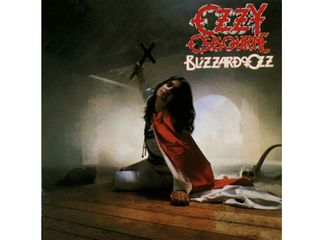
Ozzy Osbourne - Blizzard Of Ozz (1980)
“Randy Rhoads is one of the greatest guitarists ever. I don’t think that anybody has ever meshed classical guitar and metal the way he did. He’s a true pioneer.
“The tunes are classics. You go to a baseball game, a football game or a hockey match, and you’re going to hear the riff to Crazy Train blasting from the PA. The melodies in the guitar solos to Mr. Crowley are so melodic and memorable; you hear them once and you remember them. And then Randy plays beautiful classical guitar on Dee. His sense of composition was already highly developed.
“I have a good story that’s Randy related. I was talking on the phone to Zakk Wylde one day. Zakk was in his car, and at one point he said, ‘Hey, check this out, Dan!’ He pulled over and put the phone to his radio – it was Ozzy’s Over The Mountain. That’s not on this album, but it just goes to show you what a fan Zakk is – what we all are. When Randy’s solo was over, Zakk got back on the phone and said, ‘Now, that didn’t suck, did it?’”
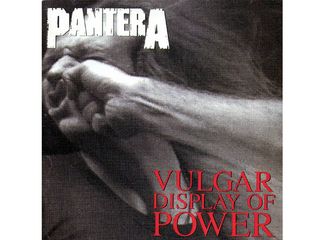
Pantera - Vulgar Display Of Power (1992)
“Even though the earlier Pantera stuff was great, this album sort of brought everything together for them. Fucking Hostile, Mouth For War, This Love, Hollow, Walk – that’s just fantastic songwriting, all of it based around massive guitar hooks.
“Dimebag was, in my opinion, the best metal guitar player who ever lived. In a way, he just a shredder, but he found ways to distinguish himself and wound up being completely unique and influential. He had a certain way of using vibrato or the whammy bar that sounded different from other guys, and his choice of notes, where he put things and took a melody, stood out, as well. He wasn’t predictable.
“We had the opportunity to play with Pantera back in 2000 on our first Ozzfest, and to see Dimebag play night after night was so special. He put everything into his guitar playing. Nobody in the metal world has come close to being the guitarist that he was.”
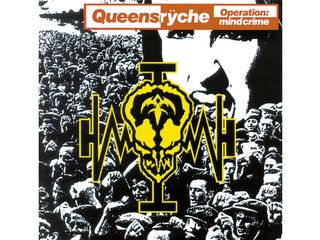
Queensryche - Operation: Mindcrime (1988)
“I was a fan of the band before this record, but I loved the whole concept album approach. The album took you on a journey, and at the same time you got plenty of awesome guitar playing by Chris DeGarmo and Michael Wilton. I think I listened to this album for a couple of years before I moved on to something else.
“Eyes Of A Stranger, Spreading The Disease, Revolution Calling, Breaking the Silence – they’re all cool tunes. DeGarmo and Wilson were very tasteful in the ways that they wove their guitar harmonies. They didn’t do the ‘one-guy-plays rhythm/one-guy-plays-lead’ thing; they were two lead players who really knew how to work together.”
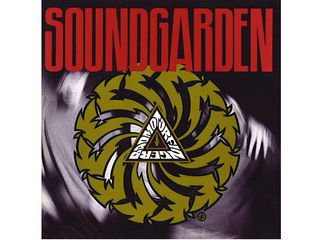
Soundgarden - Badmotorfinger (1991)
“I love this album. Kim Thayil is such an amazing guitarist, and I like what little bits Chris Cornell does, too. Their little trade-offs on Rusty Cage are so strong – you definitely want to know what’s next from that opening.
“Jesus Christ Pose, Outshined, Slaves & Bulldozers – really strong songwriting with killer riffs. Soundgarden are a great-sounding band. You have a brutal guitar attack with one of the most powerful vocalists around. They’re pretty classic, in my opinion, and very influenced by Sabbath, too.
“This influenced me in the early days of Disturbed. Soundgarden didn’t have a lot of solos; the emphasis was on riffs, strong choruses, even bridges that matter. In Rusty Cage, they go into this off-time thing instead of a guitar solo, and it brings the song to a whole new level. That kind of craftsmanship really rubbed off on me.”
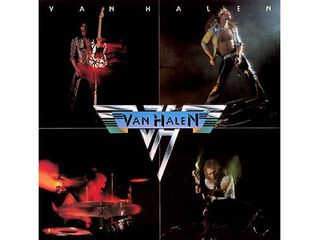
Van Halen - Van Halen (1978)
“What an incredible first album by any band! To hear a player like Eddie was such an eye-opening experience. There was Eruption, of course – every play in the world had to try to learn it – but there were all of those great songs: Jamie’s Crying, Runnin’ With The Devil, Atomic Punk. To listen to an amazing, guitar-driven band with such a tasteful shredder, it really turned things upside-down.
“Like so many other guitarists, I took the finger tapping and incorporated it into my own playing. Eddie may not have been the first person to do it, but he mastered the technique and popularized it, and he gave us all something to reach for.
“There’s a lot of guitarists who are pretty dazzling, but this was the perfect marriage of fantastic, melodic songs full of hooks with absolutely brilliant and unique guitar playing. There hasn’t been anything like it since.”

Joe is a freelance journalist who has, over the past few decades, interviewed hundreds of guitarists for Guitar World, Guitar Player, MusicRadar and Classic Rock. He is also a former editor of Guitar World, contributing writer for Guitar Aficionado and VP of A&R for Island Records. He’s an enthusiastic guitarist, but he’s nowhere near the likes of the people he interviews. Surprisingly, his skills are more suited to the drums. If you need a drummer for your Beatles tribute band, look him up.

"Reggae is more freeform than the blues. But more important, reggae is for everyone": Bob Marley and the Wailers' Catch a Fire, track-by-track

“Part of a beautiful American tradition”: A music theory expert explains the country roots of Beyoncé’s Texas Hold ‘Em, and why it also owes a debt to the blues

"Reggae is more freeform than the blues. But more important, reggae is for everyone": Bob Marley and the Wailers' Catch a Fire, track-by-track

“Part of a beautiful American tradition”: A music theory expert explains the country roots of Beyoncé’s Texas Hold ‘Em, and why it also owes a debt to the blues
